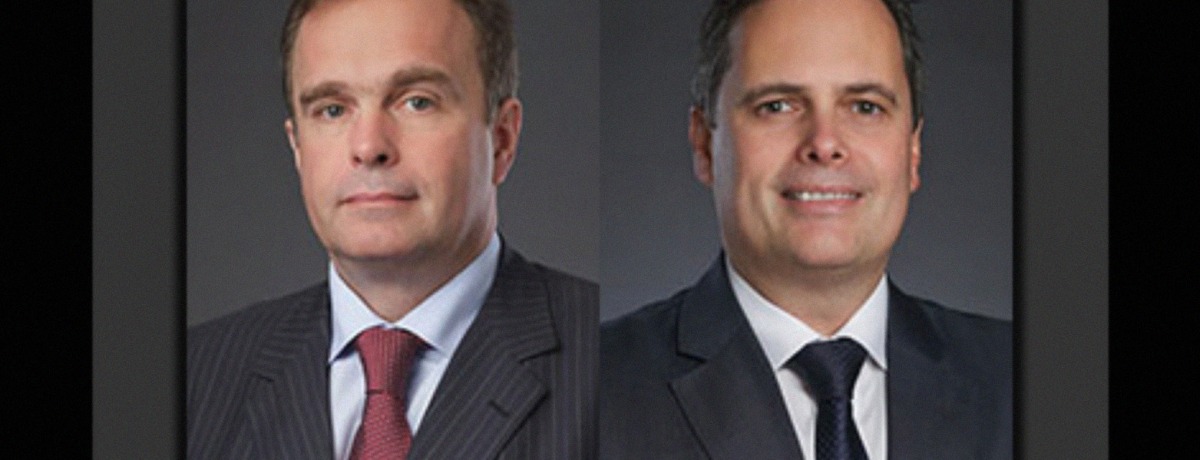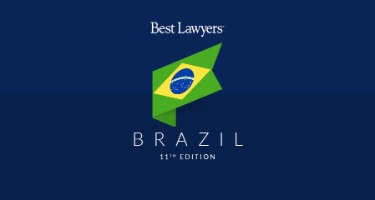"Law Firm of the Year" interview with Ricardo Coelho and Júlio César Bueno of Pinheiro Neto Advogados.
Can you tell me about the characteristics that make up your law firm and the project finance in development practice that led to being recognized as a “Law Firm of the Year”?
JCB: We have several areas in the firm, and normally the practice tends to deal with their own level of work and characteristics of work, and the greatest achievement, especially in project finance, is that we are able to combine the capabilities and competencies of several groups. For example, you have partners who have extensive experience when dealing with the banks and international multilateral agencies. At the same time, you have other partners who have more experience with the infrastructure itself—the evolution of construction contracts and its model of management. And then this main characteristic gives us the possibility when we think about project finance, we may combine these capabilities immediately and also benefit from other areas, such as tax and banking guarantees and regulation itself, or even specific issues, such as compliance and labor. These teams have gained this specific knowledge to deal with the challenge of project finance with time. This is especially important when we talk about environmental issues as well. When we were able to develop a team that could help us understand the requirements of the World Bank and other multilateral agencies, especially after the adoption of the “Equator Principles” by Brazilian banks and what this represents with the demands of financing and the needs of social environmental areas. Ricardo will be able to explain even better how we are able to combine that level of knowledge that can help our clients during the whole process of project finance.
RC: The firm was created 75 years ago and we are organized in such manner that we have four different areas: corporate, litigation, tax and labor. Those are the big four areas in the firm. Our firm has multidisciplinary teams involving the best in each specialization working in our project finance practice. We have been involved in almost every major project finance transaction over the years, especially considering those transactions involving government controlled companies, because of budgetary constraints. This type of transaction has been very favorable for the government because they could structure it in such a way that they would post off budget this kind of transaction, and the project could be repaid with receivables, so this could be posted off budget for mixed capital companies and the government in Brazil. BNDES, the Brazilian development bank, is the major provider of long-term finance in Brazil. It’s very difficult to have long-term finance from private banks in Brazil. So far BNDES has been the bank which has led this source of long-term financing for this type of transaction. The number of applications for BNDES financing has reduced in the last years, most probably driven by the government deficits and corruption scandals involving government controlled companies that have to some extent paralyzed the negotiation of many projects in the pipeline. The recent change in the methodology to calculate the interest rate charged by BNDES shall make the private sector more competitive in long-term financing. In Brazil, it is not customary to have a true project finance, plain vanilla project, because the creditors could always resort to the debtor, but it could be structured in a more sophisticated way whereby the project assets are ring fenced and protected from third parties as much as possible.
Can you tell me more about some recent trends you’ve seen in your practice area specific to Brazil?
RC: Júlio is from our litigation team and has expertise in construction law matters. And I’m a partner from the corporate group. More likely we will be involved in many infrastructure projects, but mainly in the oil and gas sector. There are transactions involving the downstream, midstream and upstream. Besides oil and gas, we have also been involved in airport infrastructure—concessions for the operation, construction, and operation of airports at the federal government level, as well as in sewage projects at the municipal level. Depending on the nature of the project, different legislation may apply to the specific case, which may fall under municipal, state or federal level. There are also projects in the transportation sector, related to toll roads and maritime transportation.
JCB: Ricardo made a good overview. What he described is a good indication of how dynamic the finance market is. For many years all the main investment in infrastructure were done by the government. Then Imagine that 20 years ago—due to Brazil's privation process in 1995, 1996—the market opened to a new level of investment, institutions that have entered the market without having the proper knowledge of engineering or construction challenges or even having the willingness to deal with the operational aspects of an infrastructure project. So, we have the opening of important sectors to not only private but also international investment: mining, electricity, energy, roads and so on. This has changed dramatically how we used to finance infrastructure and we started dealing with the challenges of project finance. Now, the struggle is more and more towards a non-recourse model, and for that matter, as Ricardo pointed out, the challenge is to understand—and I think this is also a good asset we have—how this practice is done overseas. We have close ties to US, UK, Canada, Australia and many other countries where the new trends on project finance are there, and they have impacted Brazilian and Latin American practices. You can sense this change in the way the bank deal with the guarantees: the banks want to understand the how the project was structured. For many years, the banks were mostly concerned with the quality of the guarantees provided by the sponsors and now they want to understand the project as a whole in order to know if the specific project has been structured in the best way, and so they are preparing themselves to analyze the construction contracts and its management, emphasizing the importance of the legal work in the structure of the project finance. Another important trend when dealing with project finance is compliance. All these new aspects have to be considered during the structure of the project finance.
RC: It’s also worth mentioning the energy sector more specifically, in which we may find project finance combined with corporate finance because usually we have a mismatch between the tariffs which is linked to the Brazilian currency (Real) and adjusted for inflation. Because of such currency mismatch, those transactions are typically structured as project finance when there is a power purchase agreement with independent power producers, in which the developers may sell to the sponsor and recover the investment through that type of sale. To mitigate the current mismatch and enjoy certain tax benefit, many transactions have resorted to the issuance of debentures in the local market which is a type of debt security that may be adjusted according to foreign exchange variation and has been also an interesting source of finance for this type of transaction. On the other hand, there are also public-private partnerships, PPPs, whereby a company of the private sector would carry out certain activities for the government and would, in turn, be repaid through receivables from the project, which may be enhanced by government contributions as a shadow toll either partially or totally, depending on the nature of the project. More than a decade ago, we have worked together with the government and other players in the market in the preparation of a bill of federal law to regulate PPPs at the federal level. The federal law was issued and there have been only a few transactions at the federal level, although state and municipal legislation using the federal law as a template has made feasible the implementation of several local PPP transactions in project finance style.
Where do you see these areas developing and changing in the next five years?
RC: I think infrastructure, energy, especially roads and maybe railroads as well, port operations and energy, including renewables like solar power energy and wind farm projects. The new regulatory model for natural gas under discussion may also give the opportunity to develop new plants and transportation pipelines.
JCB: The wind and solar energies will have more and more opportunities for financing. We have worked in major hydropower plants—lately in Santo Antonio, Jirau, and Belo Monte—which are the biggest ones in the energy hydropower plants. What we see is that there are other projects coming, but the issues involving socioenvironmental requirements need to be addressed.
Is there anything else you would like to add?
RC: The budgetary deficits recently faced by the government, and the lack of sufficient funds in the local market to cover satisfactorily the needs of infrastructure to keep pace with the recovery of the economy in an efficient manner, are expected to ultimately foster the implementation of project finance transactions as a competitive structure to finance transactions off budget to cope with such huge appetite for infrastructure projects in Brazil.

































